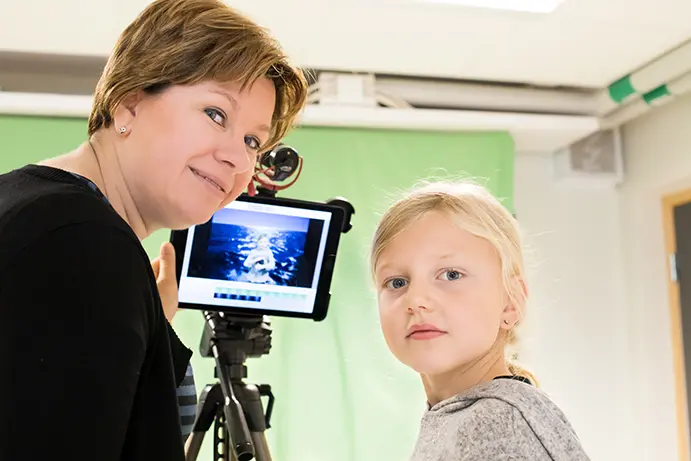Compulsory special needs school
Engelska (ENG)
The compulsory special needs school is for pupils who have a hearing impairment, visual impairment, serious speech disorder or a combination of several impairments. The teaching is adapted to the pupils’ needs and opportunities.

The teaching largely corresponds to the education provided in compulsory school. The compulsory special needs school comprises 10 years.
There are ten compulsory special needs schools throughout Sweden with different specialisations. The various schools are for
- pupils who are deaf or have a hearing impairment
- pupils with serious speech disorders
- pupils who have a visual impairment and any other disability
- pupils who are deaf or have a hearing impairment together with a development disorder and for pupils who have congenital or acquired deaf-blindness.
How do you apply to the compulsory special needs school?
You send the application to the National Agency for Special Needs Education and Schools (SPSM), which decides if a pupil is to be admitted to the compulsory special needs school.
The application to a compulsory special needs school in years 1-10 is submitted via the National Agency for Special Needs Education and Schools (SPSM).
Learn more and apply to a compulsory special needs school via SPSM's website
Assessment and learning in the compulsory special needs school
In school, the pupil continuously receives information about what he or she has learned in relation to the teaching objectives.
The teacher, the pupil and other pupils can provide feedback that contributes to guiding pupils forward in their learning. Teachers and pupils also discuss what the pupil should do to move further in his or her studies based on an assessment of what the pupil needs and already knows. It is important that the pupil obtains an understanding of his or her own learning and need for development.
Development talks in the compulsory special needs school
At least once every semester, the pupil, the teacher and the pupil’s guardian meet to discuss how the pupil is doing. This is called a development talk. The talk shall describe the pupil’s knowledge and social development in relation to the curriculum, course syllabi and knowledge requirements.
During the talk, a discussion shall be held about how the school can support and stimulate the pupil’s development and learning. The talk provides the pupil and guardian an opportunity to influence and take responsibility for the pupil’s schooling. Here, one also takes up the pupil’s potential need for extra adaptations and special support, among other things.
In the years that grades are not given, the pupil shall instead receive a written individual development plan once per year. The individual development plan shall contain written assessments and a planning of what the school will do and what the pupil him or herself and the guardian can do for the pupil to develop to the furthest possible extent.
Grades and grading in the compulsory special needs school
Grades are given from the end of the autumn semester of year 7 in the compulsory special needs school. The grading scale has six grading levels from A to F where F stands for a failing result. Final grades are given after year 10.